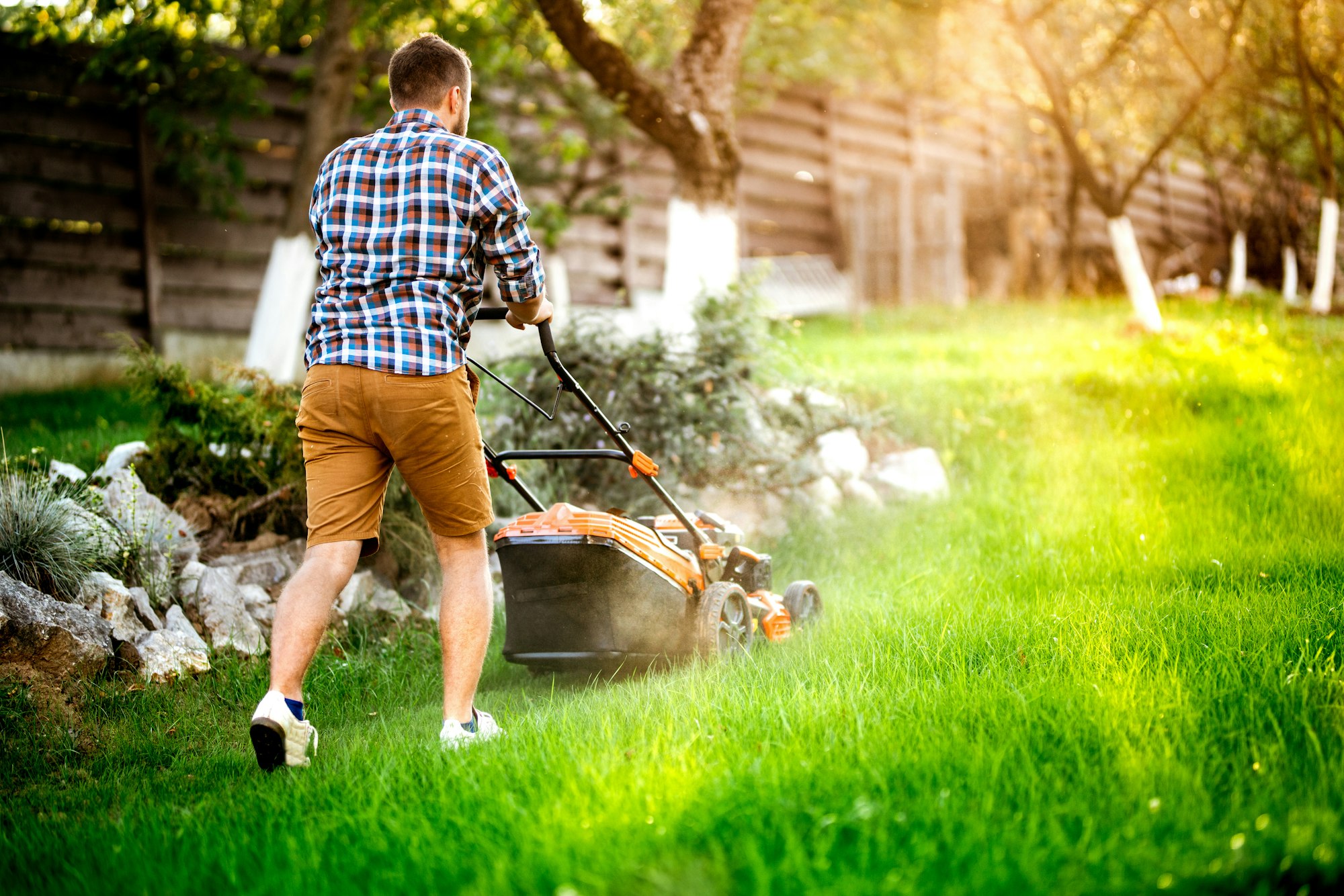Mowing the lawn is a routine task for many homeowners, but what happens when it’s raining? Is it okay to mow your lawn in the rain, or should you wait for the grass to dry? This detailed guide will explore the pros and cons of mowing wet grass, the potential risks, and the best practices for maintaining a healthy lawn even in rainy conditions.
The Risks of Mowing Wet Grass
Mowing your lawn in the rain can pose several risks to both your lawn and your mowing equipment. Understanding these risks can help you make an informed decision about whether to mow in wet conditions.
Soil Compaction
Wet soil is more prone to compaction when heavy equipment, like a lawnmower, moves over it. Compacted soil restricts air, water, and nutrient flow to the grass roots, leading to poor grass health and growth.
Uneven Cuts
Wet grass tends to bend and lay flat under the weight of the mower, resulting in an uneven cut. Unevenly cut grass can lead to an unsightly lawn and make it more susceptible to diseases and pests.
Slippery Conditions
Mowing in the rain can create slippery conditions, increasing the risk of accidents. Wet grass and soil can make it challenging to maneuver the mower, posing a safety hazard for the person mowing.
Effects on Your Lawn Mower
Wet grass can also negatively impact your lawn mower, leading to potential damage and increased maintenance needs.
Clogging and Sticking
Wet grass clippings can easily clog the mower deck and stick to the blades, reducing the mower’s efficiency. This can cause the mower to overheat and increase wear and tear on the blades and engine.
Rust and Corrosion
Moisture from wet grass can promote rust and corrosion on the mower’s metal parts. Over time, this can lead to significant damage and reduce the lifespan of your equipment.
Best Practices for Mowing Wet Grass
While it’s generally best to avoid mowing in the rain, there may be times when it’s unavoidable. If you must mow wet grass, follow these best practices to minimize damage and maintain a healthy lawn.
Use a Sharp Blade
Ensure your mower blade is sharp to make clean cuts through the wet grass. A dull blade can tear the grass, making it more susceptible to disease and damage.
Raise the Mower Height
Set your mower to a higher cutting height to avoid scalping the lawn and reducing the risk of soil compaction. This will also help prevent clogging by reducing the amount of wet grass clippings.
Clean the Mower Frequently
Stop periodically to clean the mower deck and blades to prevent clogging and ensure efficient operation. Removing wet grass clippings can help maintain the mower’s performance and reduce the risk of rust and corrosion.
Mow in Different Patterns
Change your mowing pattern each time you mow to prevent soil compaction and promote upright grass growth. This practice can also help achieve a more even cut.
Alternatives to Mowing in the Rain
If possible, consider these alternatives to mowing in the rain to maintain your lawn’s health and appearance.
Wait for the Grass to Dry
The simplest solution is to wait for the grass to dry before mowing. Dry grass is easier to cut, reduces the risk of soil compaction, and is safer for both the mower and the person operating it.
Mow More Frequently
Increase the frequency of your mowing schedule to avoid having to mow long, wet grass. Regular mowing can keep your lawn at an optimal height and reduce the need for mowing in adverse conditions.
Use a String Trimmer
For small patches of wet grass, consider using a string trimmer instead of a lawn mower. A string trimmer can handle wet conditions better and reduce the risk of soil compaction and mower damage.
Should You Mow in the Rain?
While it’s generally best to avoid mowing your lawn in the rain, there are times when it might be necessary. Understanding the risks and following best practices can help minimize damage to your lawn and equipment. Whenever possible, wait for the grass to dry to ensure a healthy, beautiful lawn and safe mowing experience.
For expert lawn care services and advice, contact Saratoga Mowing today. Our team of professionals can help you maintain a lush, green lawn in any weather conditions.


